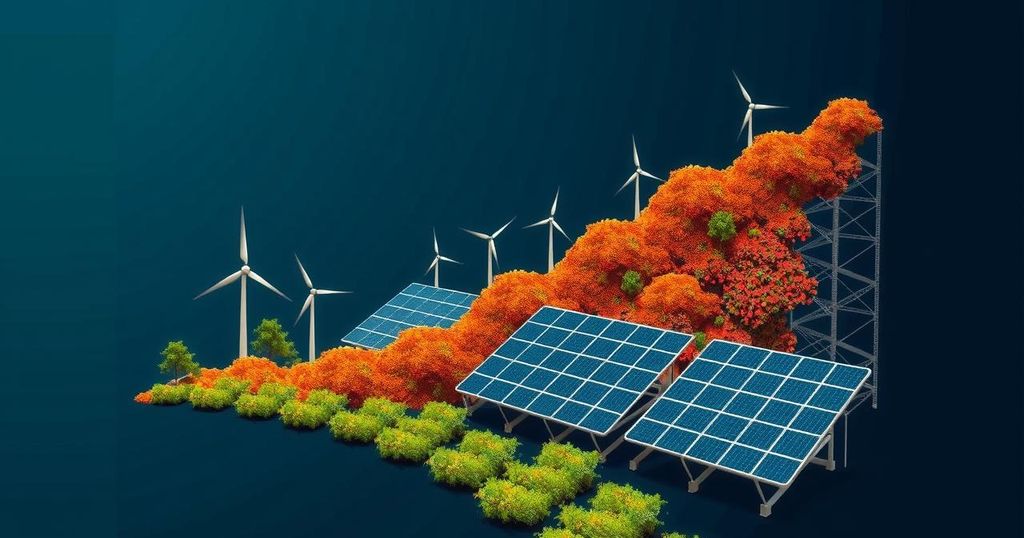The recent Climate Change Performance Index (CCPI) 2025 indicates that while renewable energy adoption is growing in many high-emission countries, significant reliance on fossil fuels, particularly natural gas, persists. Denmark leads the rankings, followed by the Netherlands and the UK, while countries like Iran and Saudi Arabia lag behind with minimal renewable energy contributions. Enhanced political action is necessary to effectively facilitate a transition towards sustainable energy solutions.
Recent developments in the realm of renewable energy indicate significant advancements in numerous high-emission countries. Nevertheless, many nations persist in promoting fossil fuel utilization, particularly natural gas. The Climate Change Performance Index (CCPI) 2025, released by Germanwatch, NewClimate Institute, and CAN International, evaluates the progress of major global emitters regarding emissions, renewables, and climate policies. Despite an increase in renewable energy contributions from 61 out of the 64 assessed countries, 29 still demonstrate low or very low emissions trends.
Denmark retains the top position in the CCPI rankings, despite not achieving an overall very high rating. The Netherlands follows closely, but looming uncertainties stemming from its new government might adversely affect future climate policies. The United Kingdom has seen significant progress, largely due to its commitment to phasing out coal and refraining from new fossil fuel licenses, propelling it to the 6th position. In contrast, countries like Argentina, presently at 59th, exemplify regression in climate action due to electoral changes denying the reality of climate change.
At the lower end of the spectrum, countries such as Iran, Saudi Arabia, the United Arab Emirates, and Russia remain entrenched in fossil fuel dependency, contributing significantly to global emissions with less than 3% of their energy mix derived from renewables. Jan Burck of Germanwatch emphasizes the growing recognition of renewables as viable and cost-effective energy solutions, citing advancements in electrification and storage technologies, yet warns against the hurdles presented by the fossil fuel lobby.
China continues to face challenges despite its monumental growth in renewable energy, ranking 55th due largely to its ongoing reliance on coal. The United States, the second-largest emitter, holds the 57th spot, reflecting insufficient investments in renewables and persisting fossil fuel subsidies. Attention will now turn to the potential implications of the recently concluded elections on the US’s climate strategies. Among the G20 nations, only the UK and India emerge as high performers, underscoring the large potential for emission reductions among the group.
The Climate Change Performance Index (CCPI) is an annual assessment of the progress made by major greenhouse gas emitters in adopting renewable energy and implementing climate policies. The CCPI evaluates 64 countries, including the European Union, which collectively are responsible for a significant portion of global emissions. This report serves to highlight where countries are succeeding and where critical disparities in energy policy and implementation remain, especially in the context of the ongoing climate crisis and global warming goals set forth in the Paris Agreement.
In conclusion, while there is a marked increase in the adoption of renewable energy across many high-emission nations, substantial reliance on fossil fuels remains, notably in major oil and gas-producing countries. Effective climate action is impeded by political inertia and fossil fuel interests, with nations encouraged to accelerate their transition to renewable sources. The CCPI findings illustrate the urgent need for a cohesive global response to meet the ambitious targets established by international climate agreements.
Original Source: www.germanwatch.org






